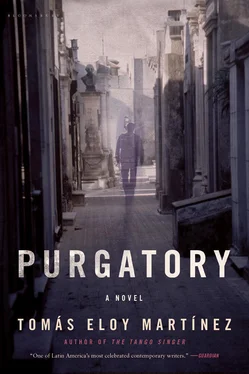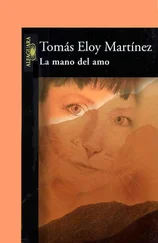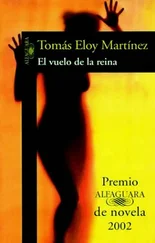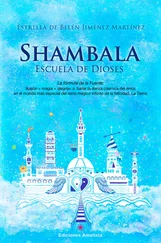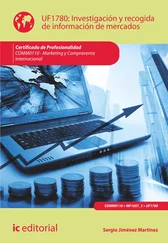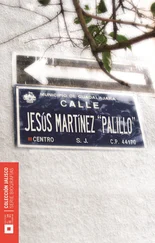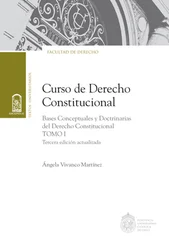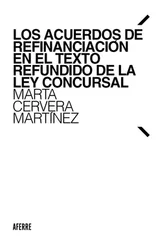I know that, the day she left the room, Emilia left her father’s house and moved back to the apartment overlooking the Parque Lezama where she had lived those first short, happy months as a married woman. She went on working at the Automobile Club and visiting her mother two or three times a week. Lost in the mists of the old people’s home, every morning Ethel woke less of a person and went to bed less of a body. She was like Señor Ga 24, a character created by Macedonio Fernández who has had a lung removed, his kidney, his spleen, his colon, and then one day Señor Ga’s valet calls the doctor and asks him to come and see to a pain in his foot; the doctor examines him, and shaking his head gravely tells him there’s too much foot and draws a line for the surgeon to cut. Emilia’s mother was like the country was back then; what she feared she would be like it would be twenty years later. I know that it was there, in San Telmo, that Emilia got the letter from her paternal aunt saying she had run into Simón in a theatre in Rio de Janeiro, the letter that convinced her to begin her search, to climb the seven terraces of her purgatory of love.
The story was restless, it didn’t stop shifting, indifferent to the defeats, the deaths, to the ever more fleeting joys. Back then, I was living in Caracas learning from my reading of Parmenides that non-being is not a half-measure, that what is not necessarily must not be , I read little Heraclitus because Borges had already used him up, I was rereading Canetti, Nabokov and Kafka, I was working like a dog, writing books that other people signed, this was the life I had been given and since I had no choice I did not complain. Meanwhile, Argentina tried to reconquer the Malvinas, lost the war, the military dictatorship foundered in its own corruption, Raúl Alfonsín won the first democratic elections and Julio Cortázar returned to Buenos Aires to shake the hand of the new president, went back to Paris without managing to get an audience and died alone two months later; Borges, who was ill, left for Geneva and did not want to go back, he was buried in Plainpalais cemetery without ever being awarded the Nobel Prize; Manuel Puig died too, in a hospital in Cuernavaca, but that was much later; all the great Argentinian writers went abroad to die because there was no room in the country for more dead. The last census recorded a population of 27,949,480; housewives wept floods of tears over the misfortunes of Leonor Benedetto in the soap opera Rosa de lejos , and Alfonsín put the admiral, the Eel and their most conspicuous collaborators on trial; the Eel spent his trial reading — or pretending to read — The Imitation of Christ by the Augustine monk Thomas à Kempis; and three military coups threatened to bury democracy; and Alfonsín was forced to step down before his time because of rampant inflation and because children scavenging in garbage bins for food fell like pollen in the streets; and he was replaced by Carlos Menem who pardoned the comandantes , sold off the few assets Argentina still possessed, constantly, vainly, talked about the poor, and let those responsible for the bombings of the Israeli Embassy and the Asociación Mutual Israelita Argentina go unpunished; and Charly García jumped from the ninth-floor window of a Mendoza hotel into a half-full swimming pool, climbed out without a scratch and that night at his concert sang: ‘ The person that you love could disappear, those who are in the air could disappear ’; and I went back to Buenos Aires intending to stay there forever but I didn’t stay. Emilia’s cape never surfaced, I reread Parmenides and learned that being also hides in the folds of nothingness.
As I pull up at the corner of Paterson and George it starts to rain. As I expected, Toscana no longer exists. The house on the corner is no longer a river nor does it weep 25, I thought, quoting a poem that came to mind, but the river is still there. I feel sure that when I look out the window I will see a river flowing where once I saw the Pampa of Buenos Aires with cattle grazing, rolling their great eyes upwards now and then to the inclement heavens. Once again I feel that in maps we can be whatever we choose, grassland, Amazonian jungle, ancient city, but also that, inside us, maps can be whatever they choose, aimless asteroids, creatures from the future or the plush bar that now sits where Toscana once was, a bar called Glo¯ which, right now, at eight o’clock, is giving salsa lessons. I stand under the eaves waiting for Emilia for ten or twelve minutes and still the rain does not ease. Finally, I see her calmly emerging from the parking lot across the way. She is alone. I don’t want to pester her with questions about her disappearance, about why she has come alone. I am prepared for the unbelievable, since I know that Simón is dead and I realise now that I don’t know what happened between them, if indeed anything happened. I gesture to her to explain that it would be impossible for us to have a conversation in Glo-. By the door, there is a menacing sign informing us that the salsa class goes on until 9 p.m.
‘Let’s go to Starbucks, then,’ she says. ‘For the Aztecs, time is circular, I don’t see why it shouldn’t be circular for us too. Look around you, the place is full of Mexicans.’
It’s true: the river has disappeared and a great dark sun now lours above the street, the Fifth Sun of the Aztecs. It was in Starbucks we first talked, that first Saturday we met, before we went to Toscana; time is gradually running backwards, a slow canon like those of Bach, a Musical Offering that leaps backwards in time, in tone, the worm Ouroboros ceaselessly devouring its tail and growing younger; step by step reality returns to its place, plays its last chords here where it played the first, we wander through nothingness with the certainty that it is nothingness and always at the end of the void appears the face of God, the Something.
I tempt fate:
‘Hey, Emilia,’ I say, ‘how is Simón going to know we’re not at Toscana, at Glo- how will he know we’re waiting for him here?’
‘He always knows where to find me. And if he loses me, I know where to find him. We lost each other once. It will never happen again.’
While we wait, I try to forget that I’m anxious. An unfamiliar feeling of vertigo overtakes me and I try to stave it off with tales like the one I am telling her now. ‘Years ago I had a dream,’ I tell her. ‘I was in a seedy dive bar. In the dream, it was noon. By the window, I saw several women about your age sitting at one end of a long table peering into corners in which other creatures came and went like flickering shadows. The shadows called to the women but could not make them hear. The women tried to embrace the shadows but could not touch them. The bar began to empty out, night ushered in the blaze of morning, the sun stripped to become night, and the women and the shadows went on trying to embrace, went on calling to each other in vain until they occupied my whole memory.’
I tauten the string. I say:
‘As I told you, I eventually wrote that dream but in an even more dreamlike way. In my story you are all the women in that bar and all the shadows are the loved one who returns: Simón. But I don’t see it like that any more. I need to make some changes to those pages. I’ve read the notes you left with Nancy. I went over the transcripts of the trial of the comandantes . I’m going to put the facts back into the reality they came from. Simón is not coming tonight. According to the transcripts, three witnesses saw him murdered—’
‘Simón is not dead,’ she interrupts me angrily, as though my words could somehow kill him all over again.
‘You told me he was with you, that I’d get to meet him tonight. How much longer are we going to wait for him?’
Читать дальше
